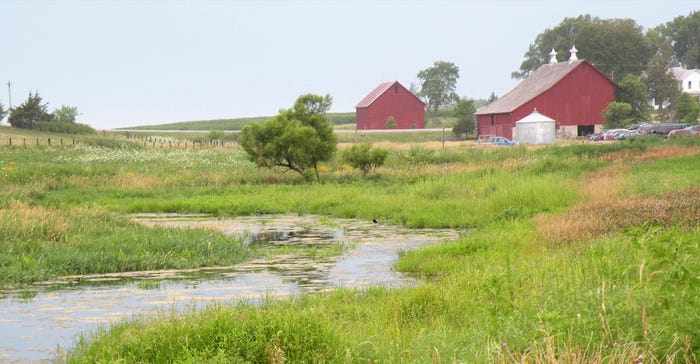April 19, 2019

By Ann Staudt
Since 1991, May has been celebrated as American Wetlands Month. Established by the Environmental Protection Agency, American Wetlands Month is a time when EPA, and public and private organizations celebrate the vital importance of wetlands to our nation’s ecological, economic and social health.
The annual recognition helps highlight the important role wetlands play in the natural ecosystem, such as helping to improve water quality and providing habitat for plants and wildlife. They also control stormwater runoff in urban and farm environments, and mitigate floodwater effects.
To raise awareness about water quality and wetlands throughout the year, Water Rocks uses songs, videos and educational outreach. The program has a series songs on the topic. Popular tracks include “Wetlands Have Important Jobs,” “Monarch Milkweed Magic” and “Life Is a Flyway.”
Wetlands are areas that are always or almost always wet: transition zones where the land meets the water. Some common names for wetlands are swamp, marsh, bog, fen, prairie pothole and slough.
A wetland has these three main characteristics:
hydric soils (wet, mucky saturated soils)
presence of water (shallow, standing water at certain times of year or water just below surface)
water-loving plants (cattails, rushes, sedges, arrowhead, etc.)
Similar to large sponges, wetlands have the capacity to store water during major precipitation events or floods, and then release it slowly over time as water levels drop. In a wet spring, such as what Iowa is experiencing this year, it may seem that wetlands are abundant. However, when water is standing in depressional areas of farm fields and along roadways, this often indicates where wetlands were historically located, the vast majority of which have been drained today.
Wetlands serve purpose
In Iowa alone, about 90% of the state’s natural wetlands have been lost. The loss of these natural water storage tanks, combined with farming practices that have exacerbated soil erosion and runoff from large areas of tilled ground, has negatively affected water quality.
In addition to storing water, wetlands are hotbeds of biological activity. Naturally occurring bacteria in these wetlands transform nitrate-nitrogen to N2 gas (which makes up 70% of our atmosphere), sending cleaner water downstream. Strategically placed wetlands can reduce nitrate-nitrogen loads by 40% to 70%.
Similarly, wetlands can help slow runoff from urban environments by trapping lawn and garden fertilizer runoff and other pollutants that can foul water supplies. Wetland filtering helps prevent pollutants from reaching streams and rivers, and it provides nutrients for the wetland plants that supply food and habitat for diverse wildlife populations.
Educating public
An important part of the Water Rocks is helping people understand the natural processes that have been disrupted by human actions, and what each of us can do to help reverse the effects. The program has created a range of wetlands content, including music videos, lessons and educational videos for elementary, middle and high school classrooms. Among these resources is our award-winning “Incredible Wetlands” video, which continues to garner attention on YouTube, recently eclipsing 36,000 views.
Staudt is director of the Water Rocks program for Iowa Learning Farms.
Source: ILF, which is responsible for the information provided and is wholly owned by the source. Informa Business Media and its subsidiaries aren’t responsible for any content contained in this information asset.
You May Also Like




